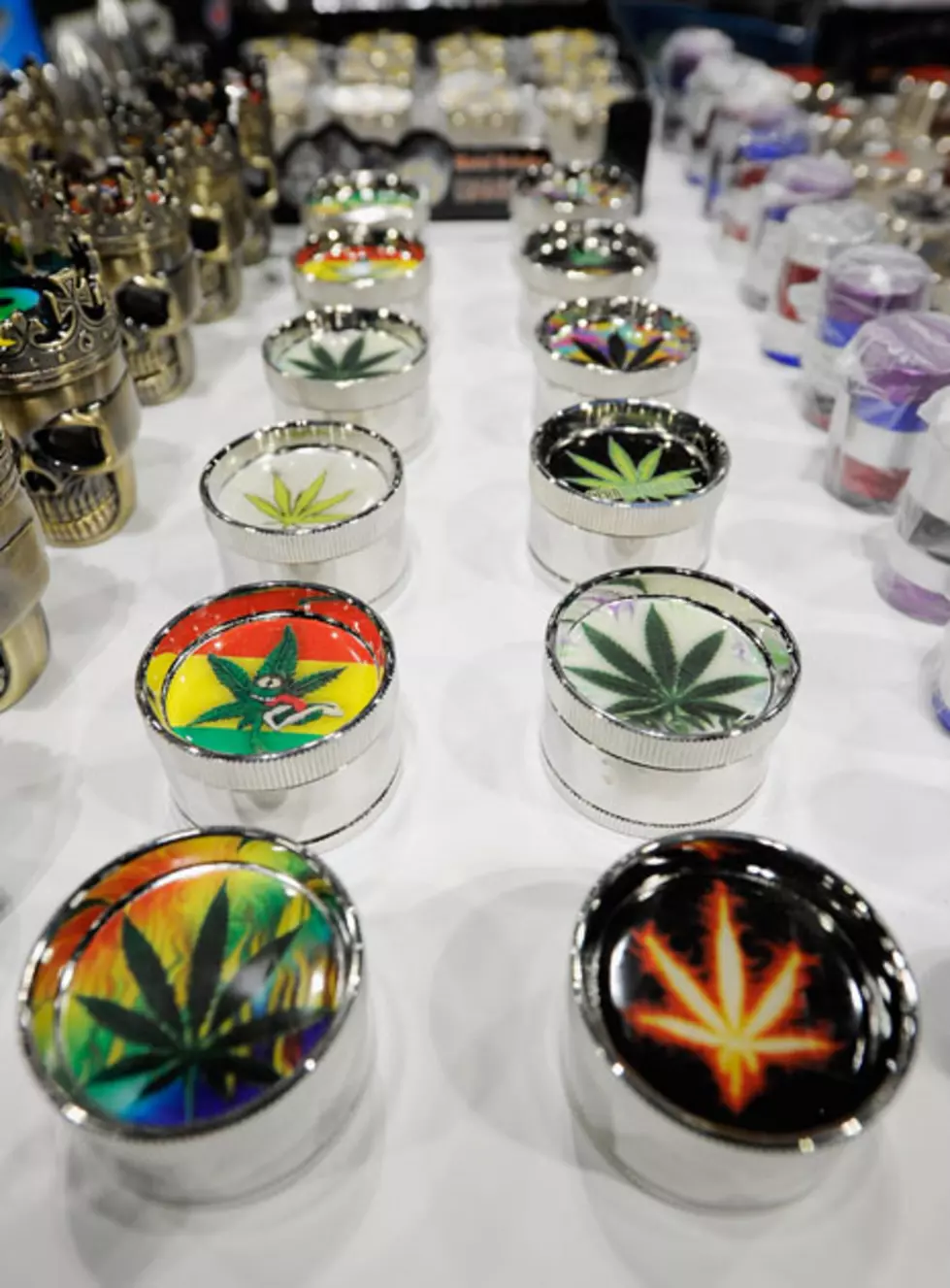
Wyoming Makes List of States Least Likely to Legalize Weed
A new study shows that Wyoming is on the list of states least likely to legalize Marijuana.
Which states are the least likely to legalize Marijuana in 2016? Marijuana has been illegal in the United States for nearly 80 years. However, the attitude towards marijuana in the US has been slowly changing. In 2013, 58 percent of Americans supported an end to banning marijuana and making it legal. Marijuana is now legal in four states. Visit 247wallst.com to read the full article.
Based on a review of marijuana laws and penalties for possession, 24/7 Wall St. identified the 11 states least likely to legalize marijuana.
1.Alabama
2.Arkansas
3.Georgia
4.Idaho
5.Indiana
6.Kansas
7.Oklahoma
8.South Dakota
9.Tennessee
10.Utah
11.Wyoming
24/7 also gave further details in to the five largest states on the list that it feels lawmakers are the farthest from legalizing marijuana.
5. Oklahoma
Max. fine for small amount: N/A
Marijuana related arrests in 2012:
Marijuana arrests per 100,000: 252.3
Minimum penalty classification: N/A
Like a few other states with relatively harsh pot laws, cannabidiol (CBD) is now slightly more accessible for seriously ill patients in Oklahoma than it has been in the past as a result of recent legislation. It is important to note that CBD is not psychoactive, so while legalization advocates have praised the development, the move will likely not pave the way to full legalization any time soon.
Oklahoma is home to some of the harshest marijuana laws. Possession of any amount of marijuana can result in incarceration, and a second offense is an automatic felony. Oklahoma’s government has also expressed its disapproval of legalization. Along with Nebraska, the state filed a lawsuit against its neighbor Colorado, where recreational pot is legal, for violating federal anti-drug laws. State attorneys argued the violation has led to more illegal drugs passing across state lines. The U.S. government has urged the Supreme Court to reject the case.
4. Alabama
Max. fine for small amount: $6,000
Marijuana related arrests in 2012: 3,600
Marijuana arrests per 100,000: 74.7
Minimum penalty classification: Misdemeanor
Marijuana use among Alabama residents is relatively rare. Roughly 9.7% of residents 12 years and older report using the drug, one of the lowest usage rates among all states and significantly lower than the national usage rate of 12.3%. Low useage may be the result of steep legal penalties for possession. Even after a reduction in the severity of the penalties earlier this year, second time offenders caught with any amount of marijuana face felony charges and up to five years incarceration.
3. Tennessee
Max. fine for small amount: $250
Marijuana related arrests in 2012: 23,488
Marijuana arrests per 100,000: 363.8
Minimum penalty classification: Misdemeanor
Tennessee passed a law earlier this year similar to Georgia, allowing people susceptible to seizures to legally use non-psychoactive cannabidiol medicinally. But also like Georgia, without infrastructure supporting the sale of the medicine, most patients are unable to obtain the substance. Governor Bill Haslam has stated that broader medicinal marijuana laws will not likely find support. Along with restrictive and ineffective medicinal laws, Tennessee has relatively strict marijuana possession laws. While the penalty for first and second time offenders of possession of less than half an ounce of pot is a misdemeanor punishable by up to one year in jail, a third time possession offender of any amount in Tennessee will face felony charges and up to six years of incarceration.
Like all states least likely to legalize pot in the near future, marijuana use among Tennessee residents is relatively rare. An estimated 9.9% of state residents over age 12 have used marijuana recently, a smaller share than in all but 10 other states. Despite low usage rates, marijuana arrest rates in Tennessee are among the highest in the nation. For every 100,000 state residents, there are 364 arrests, significantly more than the national arrest rate of 239 for every 100,000 citizens.
2. Indiana
Max. fine for small amount: $1,000
Marijuana related arrests in 2012: 13,224
Marijuana arrests per 100,000: 202.3
Minimum penalty classification: Misdemeanor
According to a 2013 statewide poll, 52% of Indiana residents support making marijuana a regulated substance — similar to alcohol and tobacco. Only 45% of those polled opposed such potential legislation. Despite a majority of residents’ support for legalization of pot, Indiana is home to some of the harshest marijuana laws in the country. Possession of a single marijuana cigarette is punishable by up to a year in jail and a $5,000 fine. Second time offenders caught with 30 grams or more — the equivalent of about an ounce or more — of the drug face felony charges and up to two and a half years of incarceration.
Indiana attempted to pass legislation that would actually strengthen anti-marijuana laws by making penalties for possession even more draconian. Such legislation is uncommon in a year where progressive reforms largely defined marijuana use and possession. The proposed bills did not move forward, however. Roughly 11% of state residents 12 years and older report using marijuana, a slightly smaller share than the 12.3% national share.
1. Georgia
Max. fine for small amount: $1,000
Marijuana related arrests in 2012: 30,611
Marijuana arrests per 100,000: 308.6
Minimum penalty classification: Misdemeanor
Despite recent legalization of non-psychoactive cannabis oil for medicinal purposes, marijuana legalization seems unlikely in the near future for residents of the Peach State. Even those who are prescribed cannabis oil for specific medical treatment face potential legal risks. Georgia currently does not allow for the production or distribution of the medicinal oil in the state, leaving patients little choice but to travel across state lines to obtain the medicine, a direct violation of federal law. While laws regarding the drug’s medical use will remain strict, some legislators along with the majority of voters, support allowing cannabidiol to be produced and distributed within state borders.
An adult in Georgia caught in possession of more than 1 ounce of marijuana can face felony charges, a $5,000 fine, and a minimum of one year incarceration. Marijuana arrests are more common in Georgia than they are in most other states. There are roughly 309 marijuana-related arrests for every 100,000 state residents, significantly more than the corresponding national rate of 239 arrests for every 100,000 people.
METHODOLOGY
To identify the last states that will legalize marijuana, 24/7 Wall St. reviewed states with the harshest marijuana laws. 24/7 only considered states where medical marijuana, with the exception of cannabis oil to treat epilepsy, is not permitted. Felony charges also needed to be possible for merely possessing the plant under certain circumstances in these states. Since marijuana law reform could be imminent even in the states with the harshest laws, 24/7 also excluded states where voter initiatives are scheduled for the near future as well as states where pro-marijuana legislation has gained support in recent months. Marijuana-related arrests per 100,000 residents through 2012 in each state came from the FBI’s Uniform Crime Report. In addition, 24/7 considered the estimated proportion of residents 12 years and older who reported using marijuana some time in the past year based on annualized data from 2012 and 2013, from the Substance Abuse and Mental Health Services Administration. The Marijuana Policy Project provided public opinion polls based on the most recent available survey. All data on current enforcement policies and penalties were provided by NORML.
More From 104.7 KISS-FM



![Vote for Your Favorite Super Heroes and Villains [POLL]](http://townsquare.media/site/103/files/2016/01/RS12651_New-Jersey-Comic-Expo-13.jpg?w=980&q=75)





